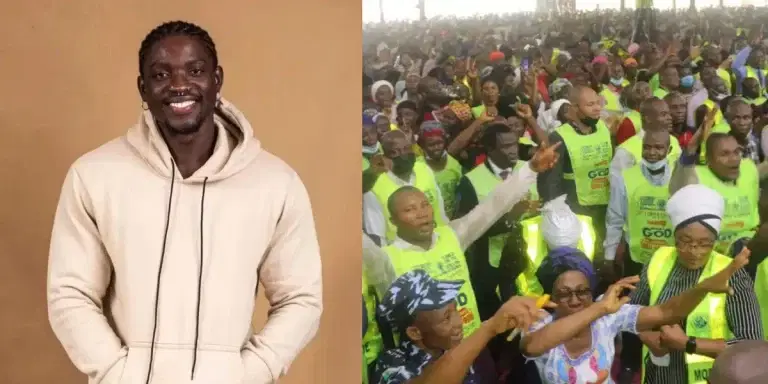In recent weeks, Nigerian activist and social media critic, Martins Vincent Otse, known popularly as VeryDarkMan (VDM), has stirred heated debates over his vocal criticism of certain practices within religious circles. This time, his target is the Lord’s Chosen Charismatic Revival Movement, a Pentecostal church in Nigeria, over what he deems to be “exaggerated” and “misleading” testimonies from its members.
The catalyst for VDM’s latest outcry was a testimony that recently went viral on social media. During a church service, a woman shared a bizarre and controversial experience where she claimed to have disarmed four armed robbers, taking control of what she called an “AK-27.” In a comical twist, the church’s pastor, rather than questioning the authenticity of her account, merely corrected her, saying the weapon she mentioned was an AK-47. This moment, however, was far from humorous for VDM and many other Nigerians who feel such testimonies exploit the faith of vulnerable believers.
VDM took to his Instagram page, calling for immediate action, specifically from the Christian Association of Nigeria (CAN), urging them to investigate the authenticity of these testimonies. In his view, the church has been peddling unrealistic claims, which have the potential to mislead and manipulate its followers. “This nonsense needs to stop,” VDM said in his video post, emphasizing that such narratives only serve to damage the credibility of the Christian faith.
The activist hinted that he is prepared to take legal action against the church, a move that could set a precedent in Nigeria’s religious landscape. VDM’s call for CAN to intervene indicates his desire for institutional oversight, which has been relatively absent in curbing such extreme testimonies. He warned that if no action is taken, religious institutions may continue to exploit the blind faith of their followers, leading to more significant societal issues, including disillusionment with religion.
This controversy goes beyond just the Lord’s Chosen Church; it touches on a broader issue within Nigeria’s religious environment, where sensational testimonies often serve as entertainment and spiritual inspiration in Pentecostal services. Such narratives, however, risk distorting the boundaries between faith, reality, and fanaticism.
The Christian Association of Nigeria, being the primary religious oversight body for Christians in the country, is now under pressure to respond to VDM’s allegations. The question arises: should churches be more accountable for the testimonies shared by their members? Are religious organizations fostering environments where people feel compelled to embellish or fabricate stories in the name of faith?
In a society where religion plays a central role in everyday life, the implications of VDM’s criticisms are profound. If unchecked, these controversial testimonies could undermine the trust that many Nigerians place in their religious leaders and institutions. On the flip side, the increasing scrutiny of religious organizations might encourage a culture of honesty and responsibility among worshippers and their pastors.
As VDM pushes for legal action and institutional accountability, his challenge to the Lord’s Chosen Church and its practices raises critical questions about the nature of faith, truth, and manipulation in Nigeria’s religious space. The unfolding of this situation will undoubtedly continue to spark conversation, both within religious circles and among Nigerians who are increasingly questioning the motives behind certain religious practices.
In the words of VeryDarkMan, “This nonsense needs to stop.” Whether or not his efforts will lead to substantial change remains to be seen, but what is certain is that the conversation around religious testimonies in Nigeria has only just begun.




